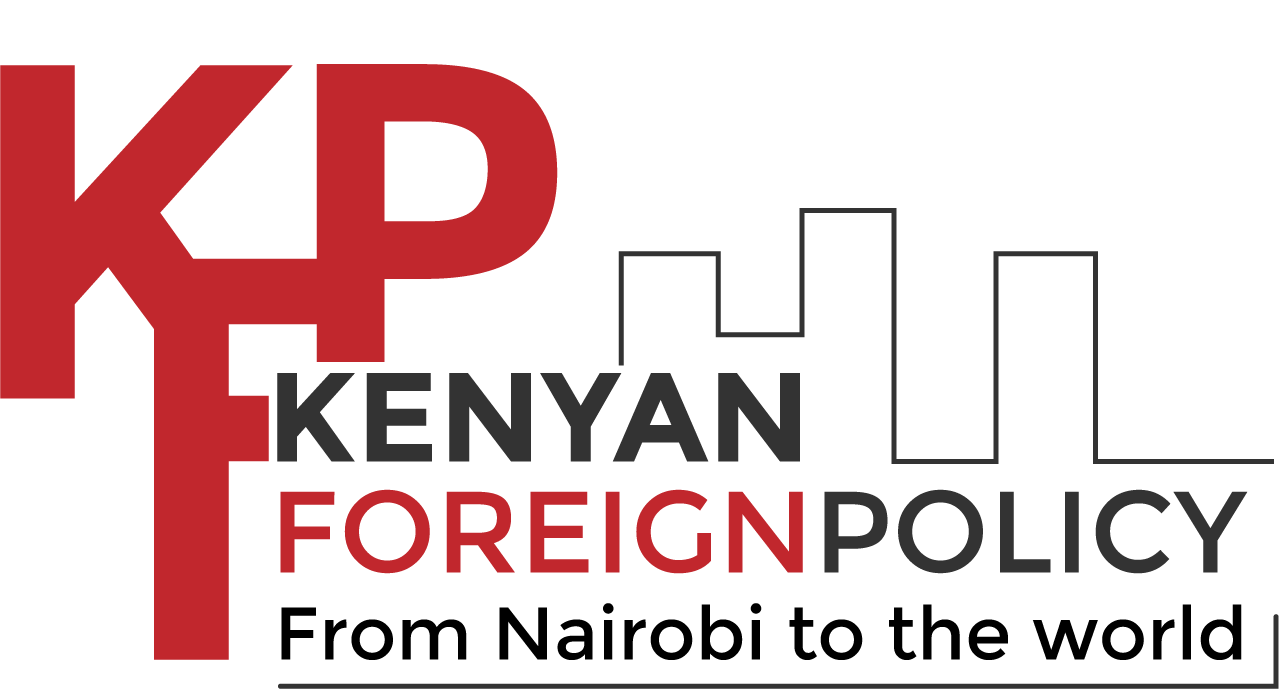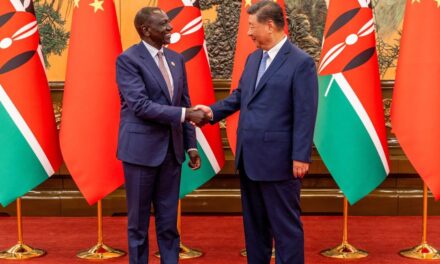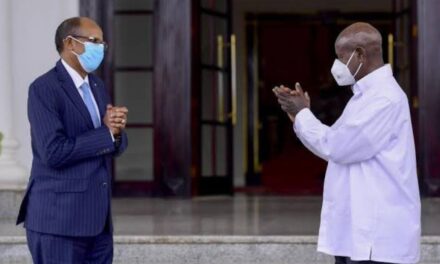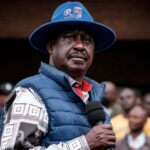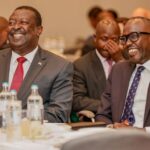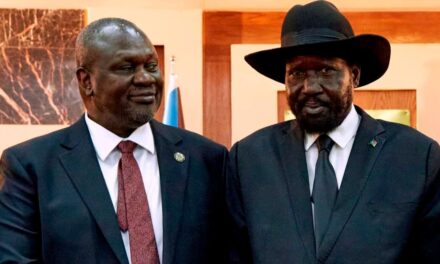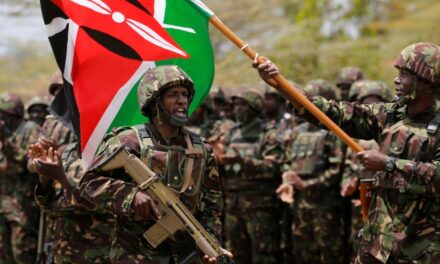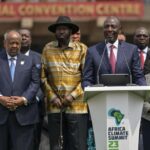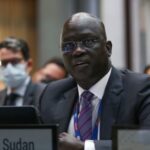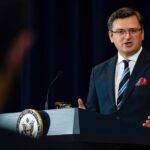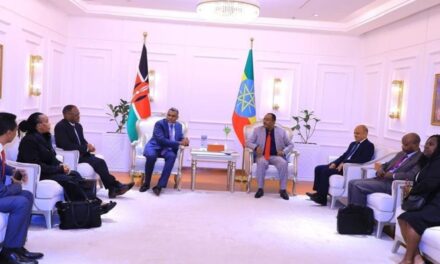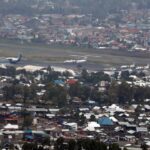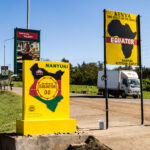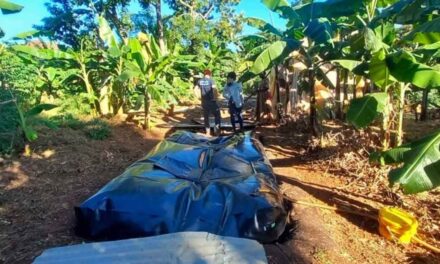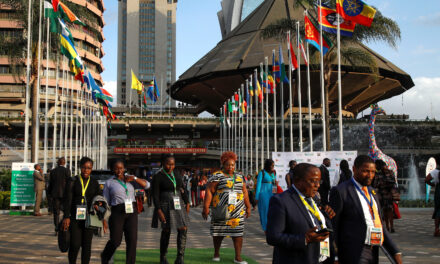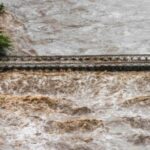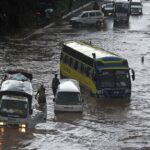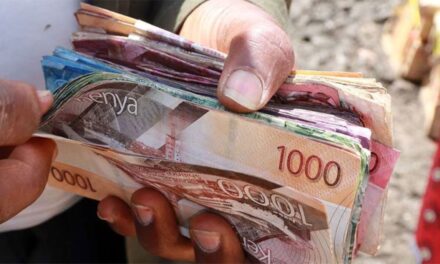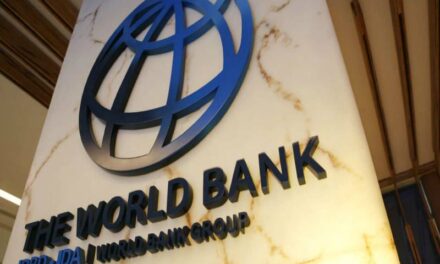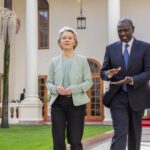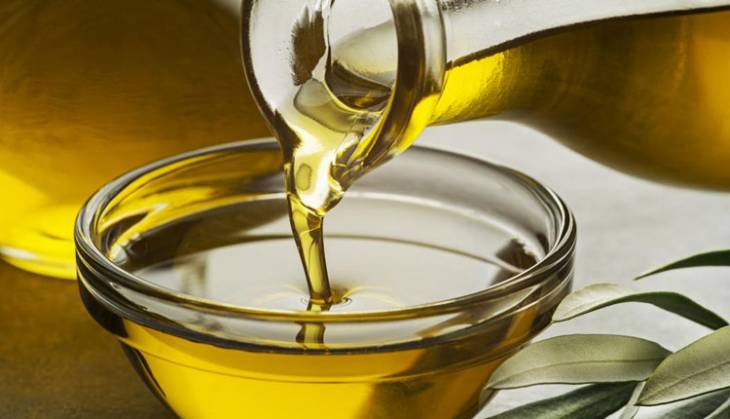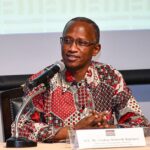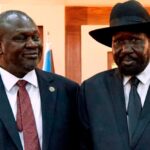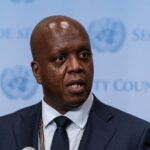

Nairobi’s Delicate Dance in North Africa: Balancing Morocco and Algeria
By Mwangi Maina
| September 1, 2024

Kenya has deployed Timothy Kaluma, a seasoned diplomat, as its new ambassador-designate to Algiers. Kaluma recently presented his credentials to the Algerian foreign minister, but unlike his predecessor, he will not cover Western Sahara. Photo: Handout
The diplomatic path ahead for Kenya in 2024 is fraught with challenges, especially when it comes to navigating the intricate relationship between two influential North African powers at the African Union (AU)—Algeria and Morocco.
As President William Ruto pushes for opposition leader Raila Odinga’s bid for the AU Commission’s top seat, he must carefully manage Kenya’s relations with both Algiers and Rabat, avoiding alienation while trying to secure crucial support for his candidate.
How does Kenya keep both Algeria and Morocco onside when they are bitter rivals?
The diplomatic dilemma wasn’t as pronounced under former presidents Daniel Moi, Mwai Kibaki, and Uhuru Kenyatta, when tensions between these two Maghreb neighbors were not at their current peak.
The situation escalated dramatically in 2021 when Algeria and Morocco severed diplomatic relations, leaving countries like Kenya caught in the middle, facing difficult choices that carry weighty consequences.
Historically, Kenya has been a pro-Algerian ally, having maintained a full diplomatic mission in Algiers since February 2015, when President Uhuru Kenyatta made a state visit to Algeria at the invitation of then-President Abdelaziz Bouteflika.
For more than five decades, Kenya largely sidelined Morocco in favor of closer ties with Algeria, driven by its clear stance on the Western Sahara conflict, a position that aligned with Algeria’s interests.
However, under Ruto’s administration, Kenya’s long-standing policy on Western Sahara is undergoing a significant shift.
This pivot is highlighted by Kenya’s recent economic deals with Morocco, including plans to construct a fertilizer factory in Kenya, a strategic move to appease local farmers disgruntled by a fake fertilizer scandal.
Morocco is the world’s second-largest exporter of fertilizer, thanks to its vast phosphate reserves, which account for 70% of the global total.
This economic rapprochement could signal a recalibration of Kenya’s diplomatic stance.
As part of these warming ties, OCP Africa, a Moroccan state-owned fertilizer company, set up an office in Nairobi in 2016 to boost agricultural productivity through tailored fertilizer solutions.
However, this pivot towards Morocco has not come without consequences.
Kenya’s decision to withdraw its ambassador from Western Sahara and relegate Algeria to a secondary diplomatic tier has raised eyebrows among policy analysts.
The recall of Peter Katana Angore, Kenya’s ambassador to Algeria and the Sahrawi Arab Democratic Republic (SADR), has been seen as a move to strengthen ties with Morocco at the expense of its relationship with Algeria.
Kenya’s recalibration has not gone unnoticed. Algeria has responded by engaging in shuttle diplomacy with Nairobi to express its concerns.
The Algerian President even met with Ruto during the G7 summit in Italy to discuss the strained relations.
Meanwhile, Kenya has deployed Timothy Kaluma, a seasoned diplomat, as its new ambassador-designate to Algiers. Kaluma recently presented his credentials to the Algerian foreign minister, but unlike his predecessor, he will not cover Western Sahara.
The changes in Kenya’s diplomatic approach have stirred debate. Principal Secretary for Foreign Affairs, Korir Sing’oei, told Kenyan Foreign Policy that accrediting an envoy to Western Sahara, heavily backed by Algeria, offers “little strategic commercial value for Kenya.”
This statement reflects a pragmatic shift in Kenya’s foreign policy priorities, focusing on tangible economic benefits rather than ideological stances.
On the other side of the Maghreb divide, Kenya’s first-ever ambassador to Morocco, Jessica Gakinya, recently presented her copies of credentials to Moroccan Foreign Minister Nasser Bourita.
This move is highly strategic, coming just ahead of the AU Commission elections where Morocco wields significant influence.
Morocco’s diplomatic clout was evident in 2017 when it played a key role in Amina Mohamed’s loss to Moussa Faki in the AU Commission chair race.
In January of this year, Algeria donated 16,000 metric tonnes of urea fertilizer to Kenya—a much-needed commodity that aligns with Ruto’s 2022 presidential campaign promises.
Yet, just days after his inauguration in September 2022, Ruto met with Morocco’s top diplomat, confirming his intention to sever ties with the Algerian-backed SADR.
In a tweet that has since been deleted, Ruto expressed plans to “wind down” the SADR’s presence in Nairobi, contradicting Kenya’s traditional support for Western Sahara’s independence and the AU’s stance of recognizing the SADR as a sovereign state.
Kenya’s actions have placed it in a delicate balancing act between two powerful rivals at the AU. Algeria and Morocco are both influential players who can significantly sway support within the AU.
Morocco, with its strategic economic ties and ability to mobilize votes, has already shown its effectiveness in influencing AU elections, as seen in 2017.
On the other hand, Algeria remains a key ally for those advocating for Western Sahara’s independence and is not likely to be pleased with Kenya’s recent diplomatic maneuvers.
As Kenya attempts to reposition itself geopolitically, the stakes are high.
Navigating these alliances without stepping on diplomatic landmines will require skillful diplomacy and a clear understanding of regional dynamics.
For President Ruto, the challenge will be to balance these relationships delicately, leveraging economic ties while ensuring Kenya does not alienate either of these North African giants ahead of the crucial AU elections.
The road ahead is narrow, and any misstep could have significant repercussions for Kenya’s standing in African diplomacy.
Your support empowers us to deliver quality global journalism. Whether big or small, every contribution is valuable to our mission and readers.
